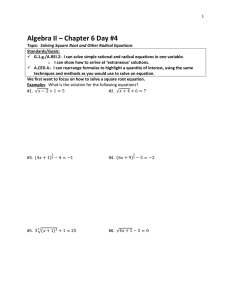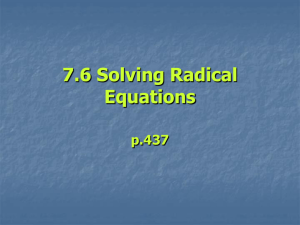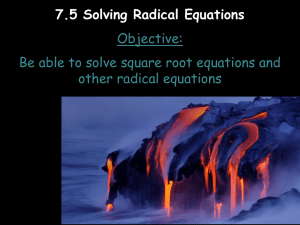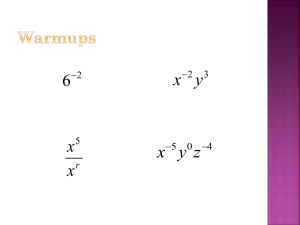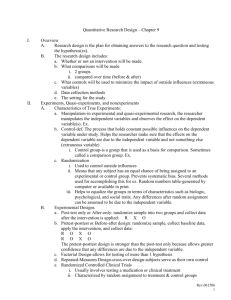4-4 Solving Radical Equations
advertisement
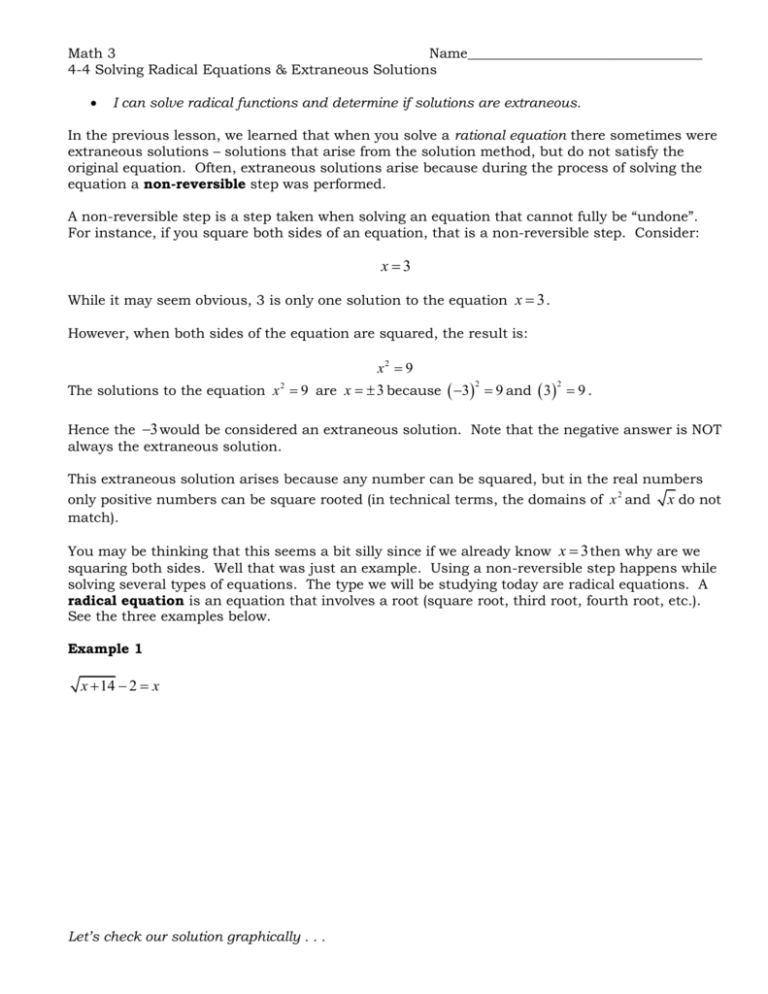
Math 3 Name__________________________________ 4-4 Solving Radical Equations & Extraneous Solutions I can solve radical functions and determine if solutions are extraneous. In the previous lesson, we learned that when you solve a rational equation there sometimes were extraneous solutions – solutions that arise from the solution method, but do not satisfy the original equation. Often, extraneous solutions arise because during the process of solving the equation a non-reversible step was performed. A non-reversible step is a step taken when solving an equation that cannot fully be “undone”. For instance, if you square both sides of an equation, that is a non-reversible step. Consider: x3 While it may seem obvious, 3 is only one solution to the equation x 3 . However, when both sides of the equation are squared, the result is: x2 9 The solutions to the equation x 2 9 are x 3 because 3 9 and 3 9 . 2 2 Hence the 3 would be considered an extraneous solution. Note that the negative answer is NOT always the extraneous solution. This extraneous solution arises because any number can be squared, but in the real numbers only positive numbers can be square rooted (in technical terms, the domains of x 2 and x do not match). You may be thinking that this seems a bit silly since if we already know x 3 then why are we squaring both sides. Well that was just an example. Using a non-reversible step happens while solving several types of equations. The type we will be studying today are radical equations. A radical equation is an equation that involves a root (square root, third root, fourth root, etc.). See the three examples below. Example 1 x 14 2 x Let’s check our solution graphically . . . To Solve a Radical Equation: Practice 1 x 3 30 2 x Example 2 z 1 1 z 6 Example 3 3 2 x 5 8 7 Practice Now it is time to try some problems on your own! 1. 4 x 13 x 2 2. 5r 6 r 5 x 9 x 1 3. 4. 4 2n 3 5. 2 x 5 5 1 3 6. 5 x 3 3x 7 7. 2 x 8 3 x 2 8. z 1 z 5 9. 2t 1 2t 1 10
